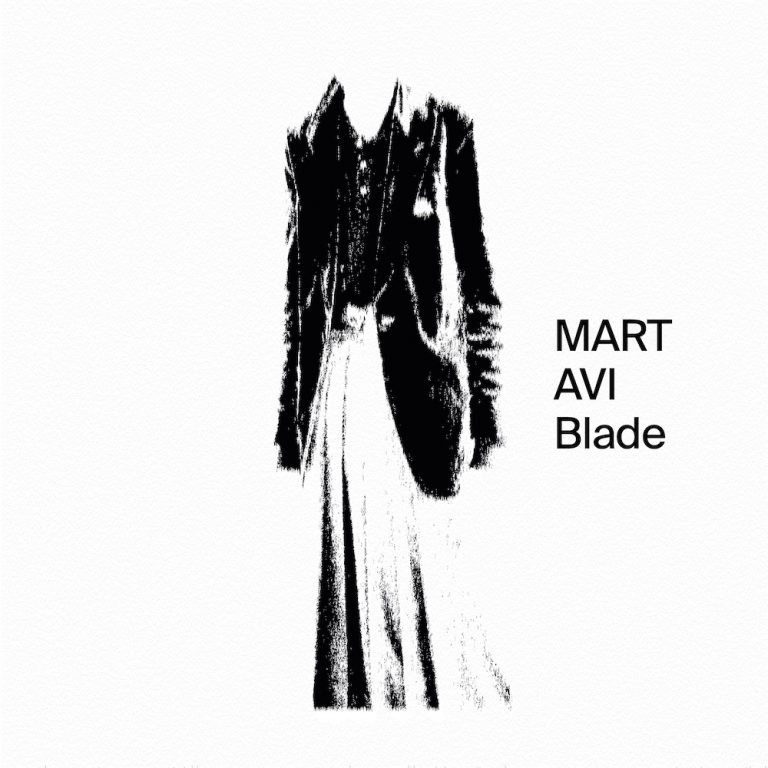Mart Avi is a walking paradox. The mind of the Estonian solo artist is open and receptive, constantly alive to inspiration, yet he remains unaffected by the prevailing vogue. Describing his work is difficult, and abstract terms such as ‘otherworldly’ and ‘alien’ only go so far before relinquishing their meaning altogether. His latest album, Blade, isn’t a collection of mysterious reverberations from some distant planet; it’s a finely crafted avant-pop album, rooted in the tangible.
Harsher, more angular and fragmented than his previous work, particularly in its use of percussion, Avi’s latest record is likely to isolate some listeners. Barriers occur even in the more accessible tunes – the funky bassline of “Lost Weekend” competes with guttural vocal utterings. Esoteric, yes, but insincere it is not. Avi has always been keen to play with the parameters of pop music, and Blade is a continuation of this interest – also heard on predecessor Vega Never Sets.
Cyborg-ish may appear to be another meaningless descriptor, but it feels apt when applied to Blade. Here the organic and the electronic work in harmony, leaning in on each other to support the album as a whole. Avi uses a vast array of synthesised sounds to mould the record, conjuring up metallic shards of noise and twisting glittering bells into subtle melodies. It’s surprising then that each song is so spacious, with entire soundscapes rising out of seemingly few elements. “Big Sleep”, for example, is an industrial apparition constructed almost solely out of percussion and snippets of vocal melody. Of course, this is partly a trick of the production (and repeated listens reveal the true depth of each track). However, it is also a testament to Avi’s acute ear and understanding of timbre.
Alongside his stellar production skills, Avi possesses a meticulously honed vocal; one which over the years has only become more distinctive. On Blade he adopts an enigmatic falsetto, naturally distorting his voice and playing more into the cyborg-ish concept. This is furthered on “Beauty Attacks”, where heavily affected and bare, untreated vocals coexist. Avi adopts the same approach with guitars and pianos too, pushing their sound into the realm of synthetic, whilst also manufacturing ‘organic’ sounds out of pure electronics. Blurring these lines gives the record an uncanny edge, warning one to tread lightly whilst traversing its hypnotic soundscapes.
Less otherworldly and more ‘future-worldly’, Blade takes contemporary influences and drives them close to breaking point. Avi, meanwhile, remains in control. He gives his take on garage, trap, and R’n’B, not so much subverting them as recreating them in his own style. This doesn’t always work, though the clumsier moments are often counteracted by unexpected peaks of lush electronics. In fact, it is only in the more conventional tracks that Blade loses its sharpness. Thankfully, Avi is frequently overcome with curiosity, happy to interrupt songs like “The Footage” and “Life 4 Sale” and switch tack. Forged by a singular disposition, Blade is the work of a true maverick.

